Submitted by WA Contents
OMA wins competition to transform world’s oldest museum for Ancient Egyptian culture in Turin
Italy Architecture News - Jan 30, 2023 - 16:21 4047 views
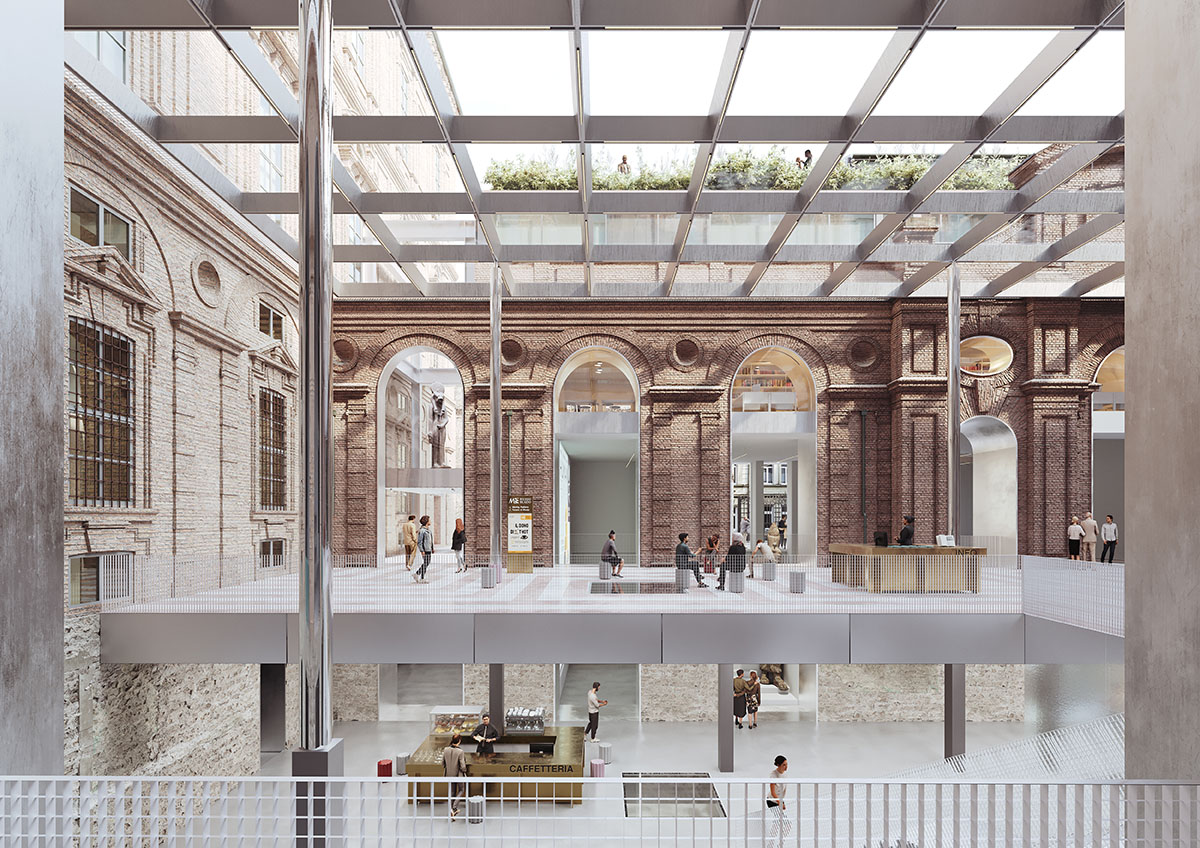
OMA has won the competition to transform Museo Egizio, the world’s oldest museum for Ancient Egyptian culture, into an open cultural space accessible to all in Turin, Italy.
Called Museo Egizio 2024, the project, led by OMA Managing Partner David Gianotten and architect Andreas Karavanas, creates a new covered courtyard known as Piazza Egizia and comprises a series of connected urban rooms within the existing museum.
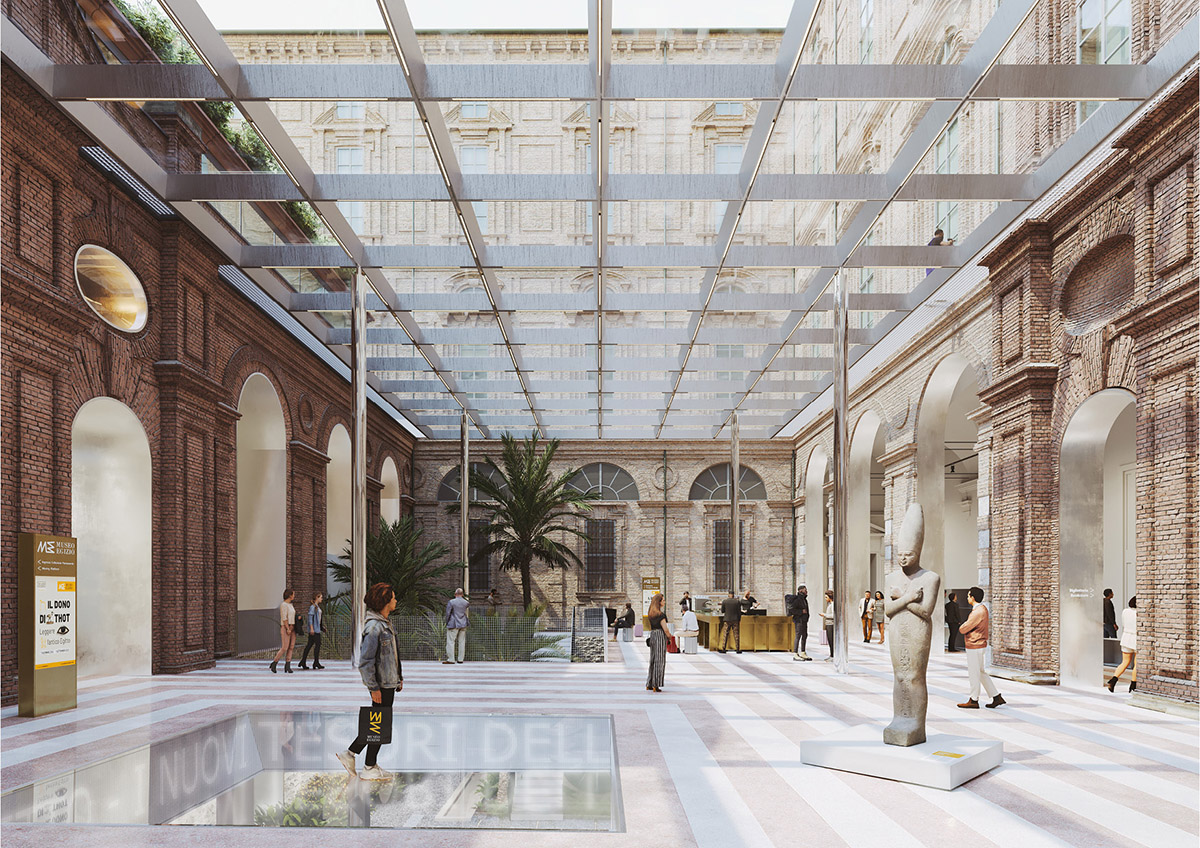
Image © OMA by Alessandro Rossi
OMA is working with local architects Andrea Tabocchini Architecture, T-Studio, and historical consultant Professor Andrea Longhi on the project.
Museo Egizio, founded in 1824, is housed in Collegio dei Nobili – a complex consisting of exhibition galleries, the Academy of Sciences, and an open courtyard.
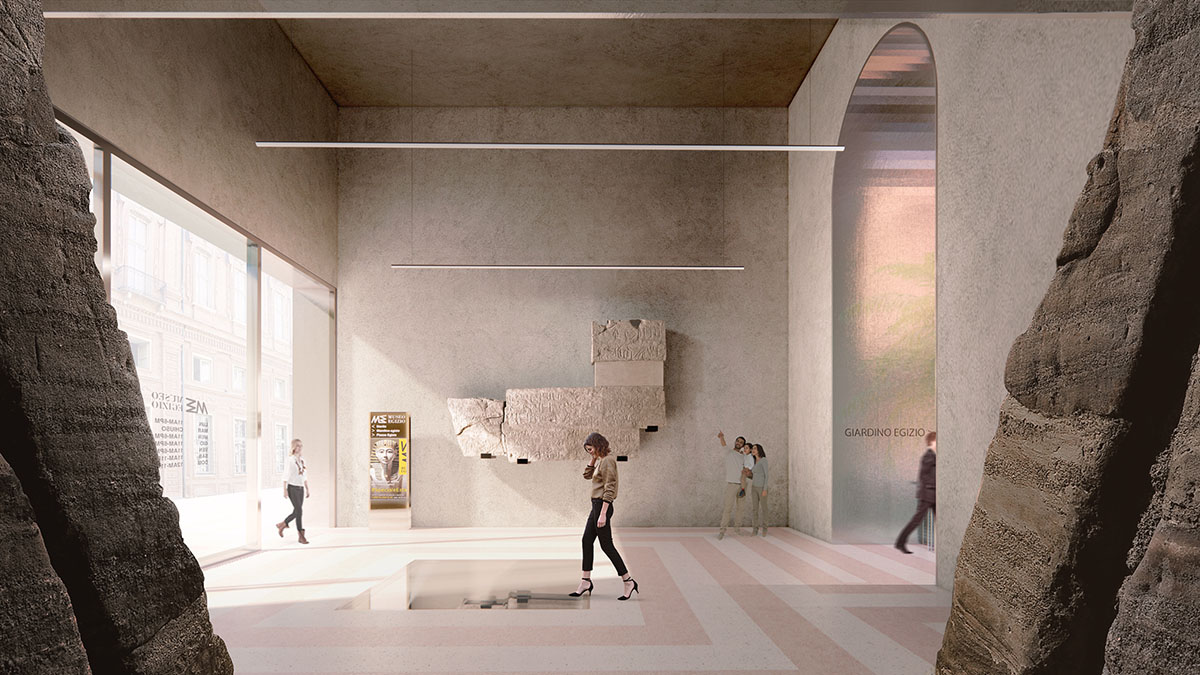
Image © OMA
"Changing requirements over the past two centuries have led to numerous alterations to the museum’s architecture, closing the public areas off to the rest of the city," said OMA in its project description.
"Museo Egizio, with an open courtyard, is historically a main civic space in Turin. Our team believes that it is vital to restore the public nature of the museum and integrate it back with Turin’s network of public spaces," said OMA Managing Partner – Architect David Gianotten.
"By reorganizing the current museum’s public areas, we have created the Piazza Egizia, which is a place for all kinds of activities shared between Museo Egizio and the city," Gianotten added.
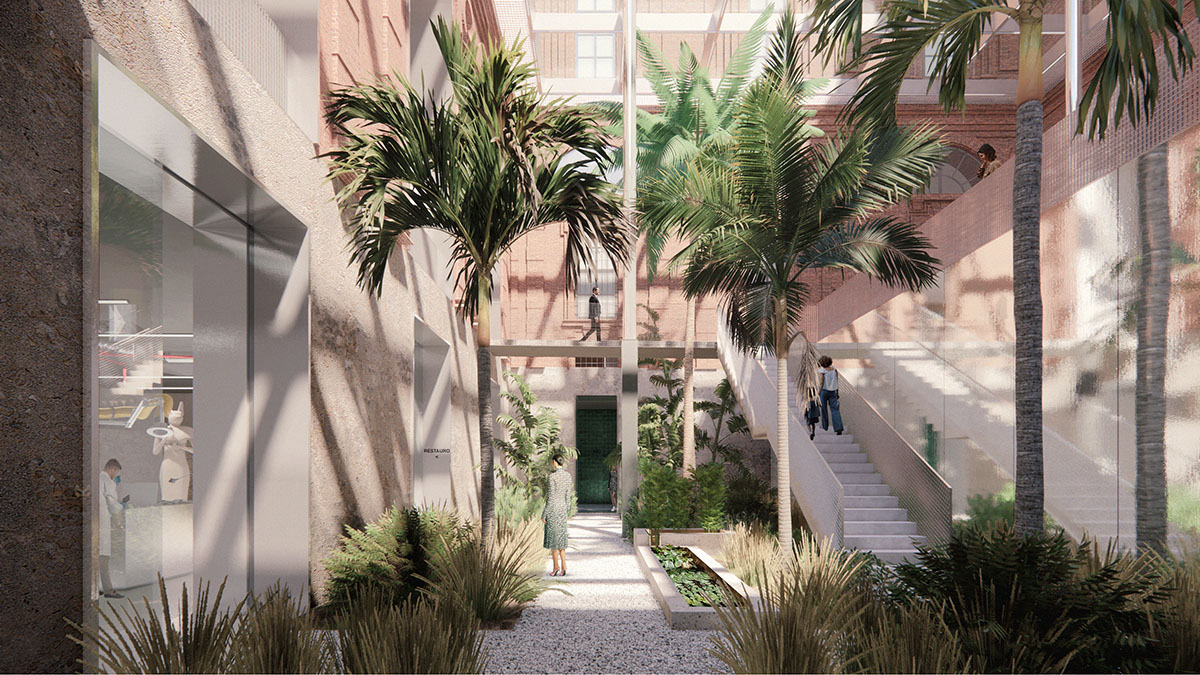
Garden. Image © OMA
OMA creates six distinctive urban rooms, with each has its unique scale, function, and quality. The Piazza Egizia, the largest urban room, takes place at the center of the museum, acting as a central spine.
This central spine connects the six urban rooms together, and it also connects both of the museum’s entrances on Via Accademia and Via Duse.
The team introduces new openings to the current façade along Via Duse, aiming to draw the public into the museum and the Piazza Egizia.
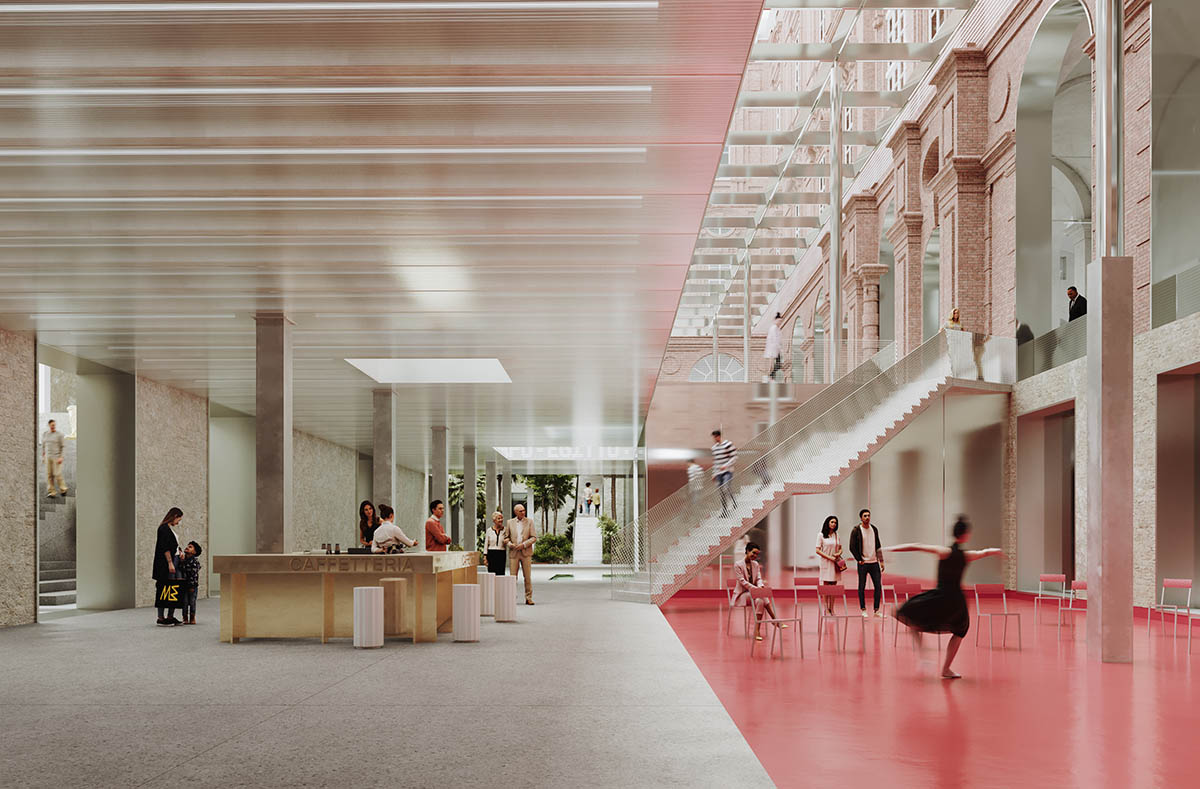
Event and Learning Space. Image © OMA by Jeudi Wang
To provide visual continuity, the six urban rooms share a ground floor pattern which is inspired by the museum’s artefacts.
The Piazza Egizia is designed as "a double-level, multifunctional courtyard" to showcase the museum’s original architecture and trace interventions over time.
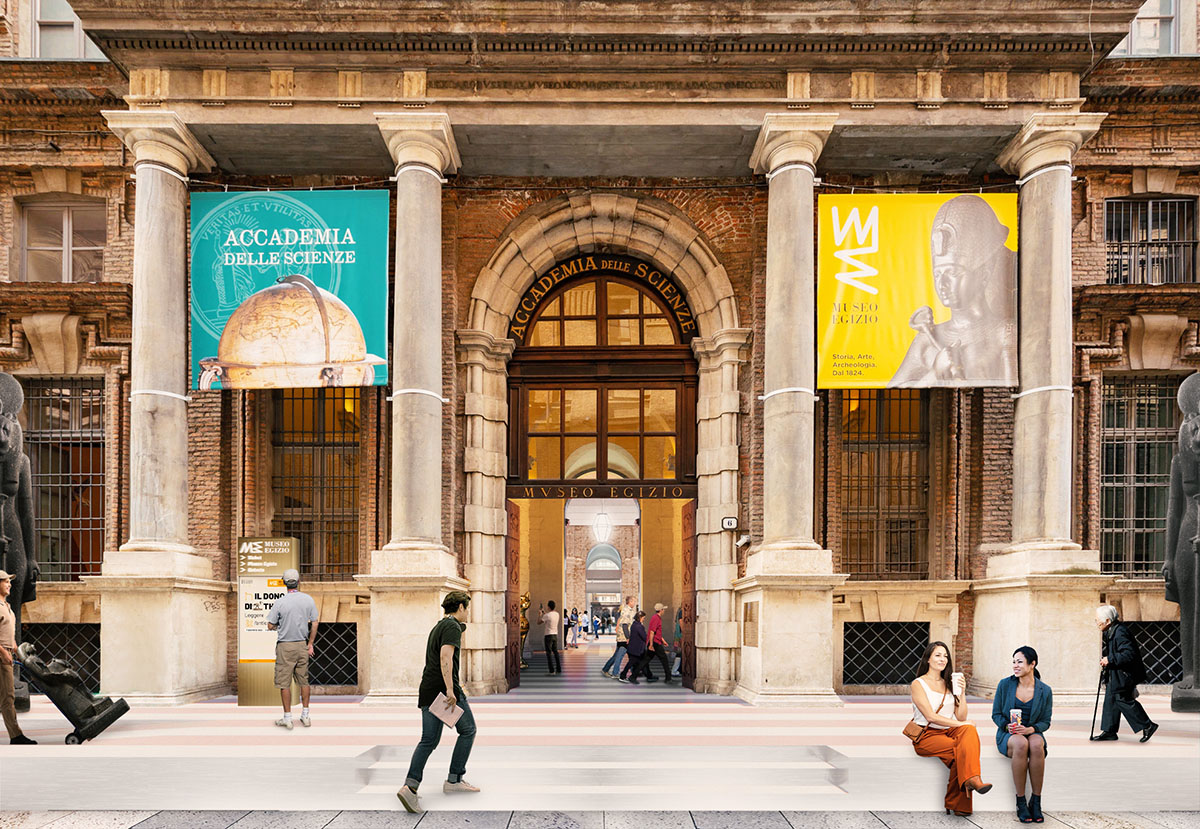
Urban Room Via Accademia. Image © OMA
At the ground level, the team redesigns multiple historic openings of the courtyard – which had been closed due to the museum’s alterations.
Once the historic openings are open, they will connect the public space back to the city. At the first level, the team introduces the Egyptian Garden and the event and learning space.
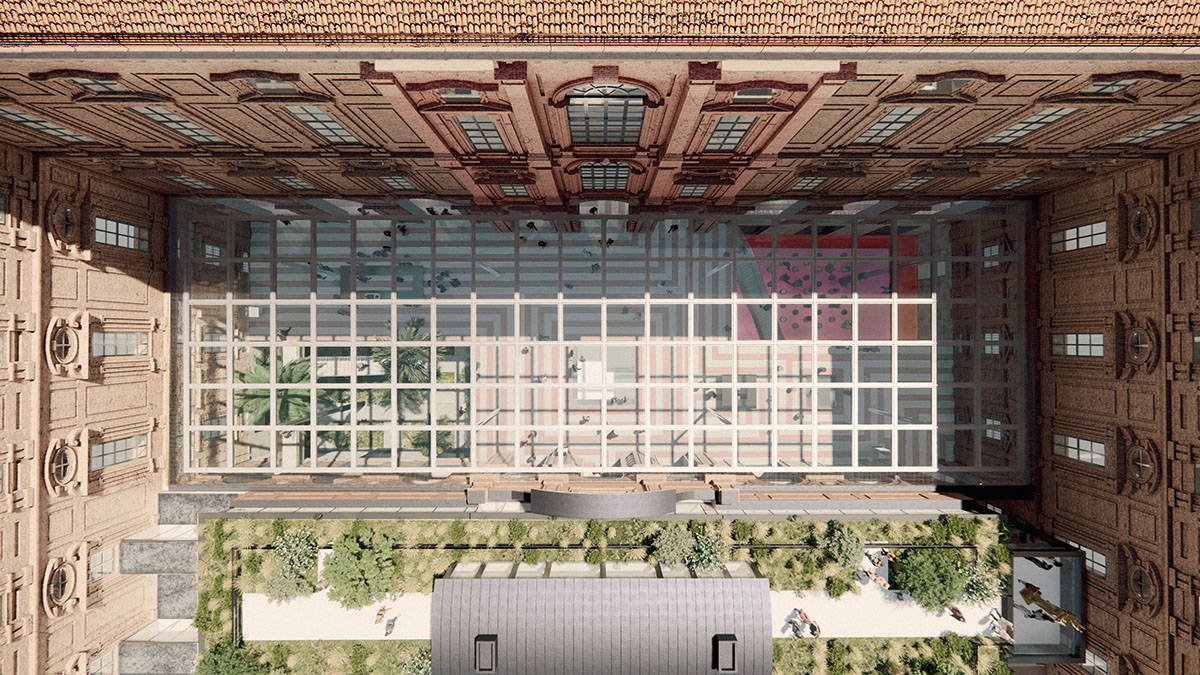
Image © OMA
In addition, the team uncovers Collegio dei Nobili’s original façade, concealed since the 2010 renovation. The courtyard is covered by an aluminum cladded steel structural grid transparent canopy, acting as a device for rainwater collection, alongside air ventilation, and lighting provision.
All these features are also envisioned in response to the museum’s ambitions for sustainability.
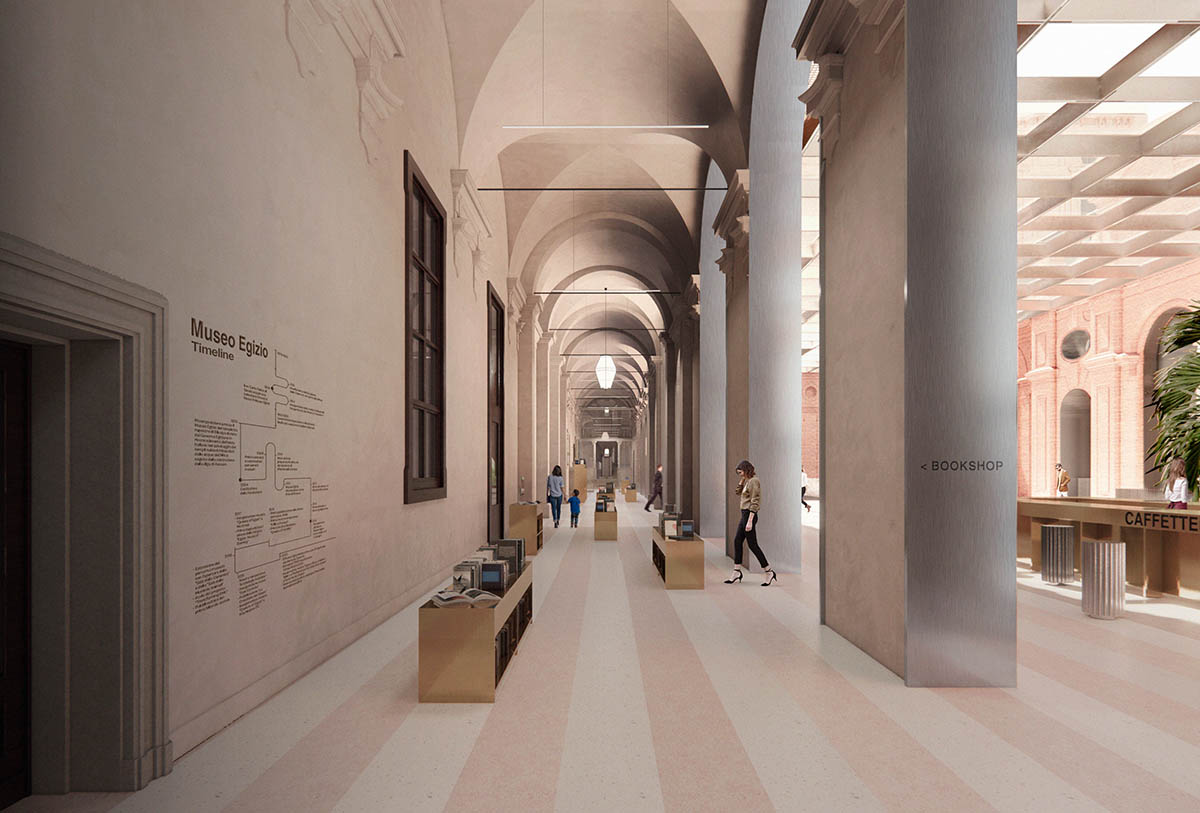
Urban Room Arcade. Image © OMA
"We have conceptualized the Piazza Egizia as a palimpsest that reveals the different layers of the museum’s history," said OMA Project Architect Andreas Karavanas.
"This approach restores coherence to the architecture and lends the museum a lucid identity, while ensuring that the institution’s new needs are fulfilled," Karavanas added.
The Piazza Egizia and other urban rooms are planned to be opened without working hours for visitors with or without tickets.
OMA said that "Their public nature offers possibilities for the museum to extend its opening hours."
"A selection of Museo Egizio’s artefacts is on display for the general public’s initial encounters with the museum collection."
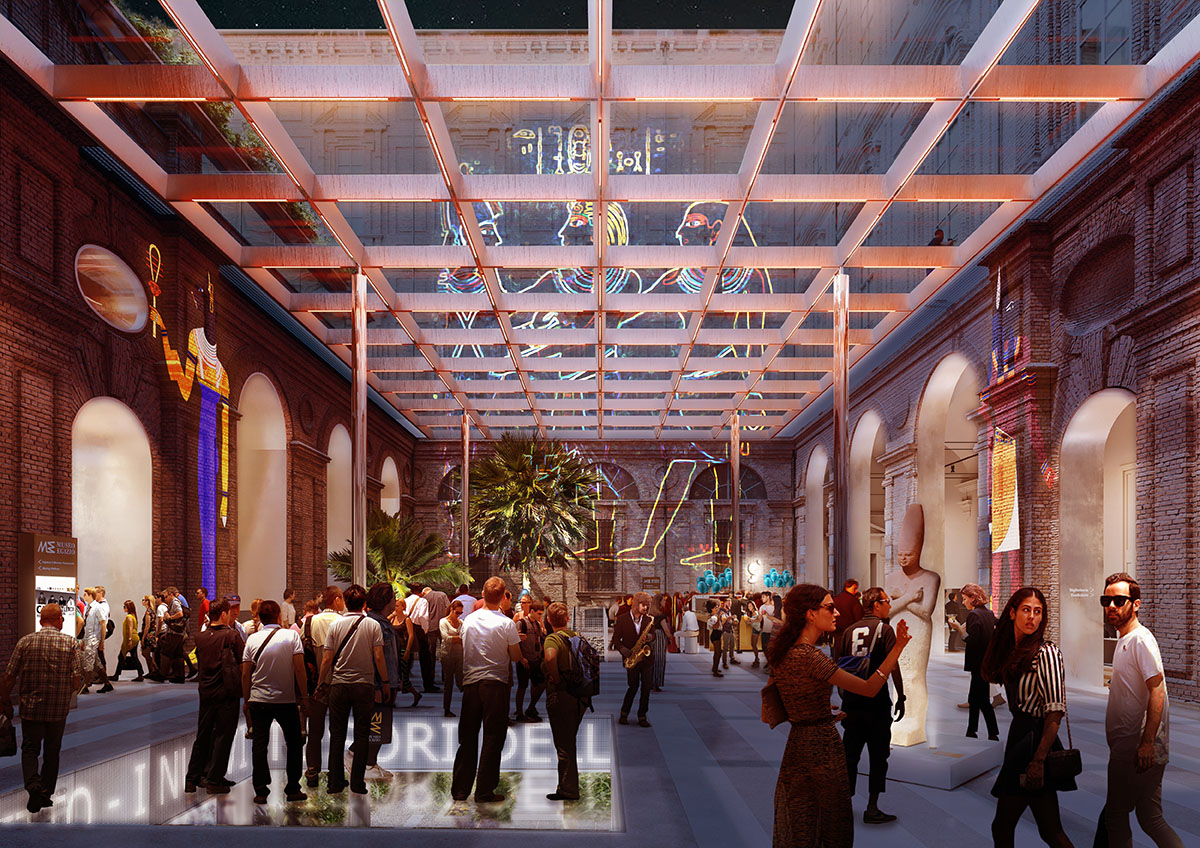
Image © OMA
OMA’s design was selected among competition entries by Kengo Kuma and Associates, Pininfarina Architecture, Carlo Ratti Associati, and Snøhetta.
The Museo Egizio complex consists of exhibition galleries, the Academy of Sciences, and an open courtyard.
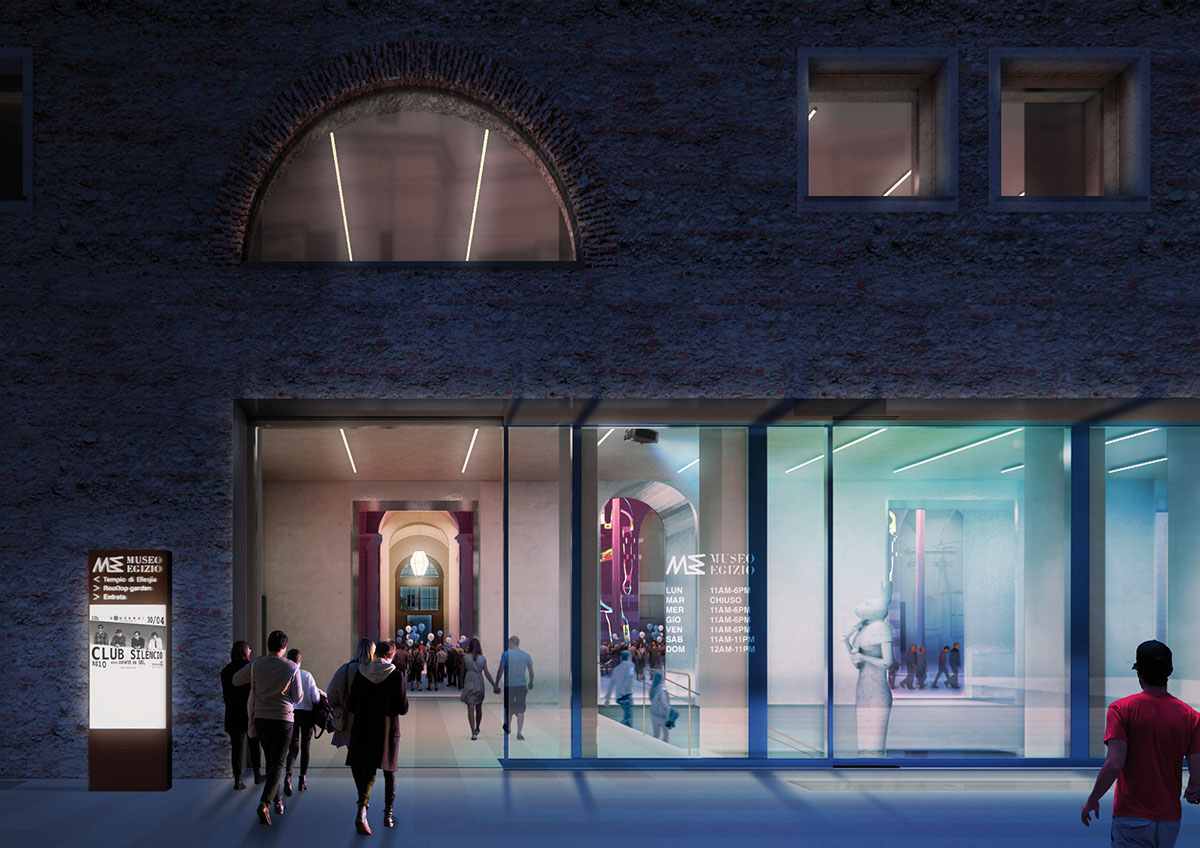
Via Duse Entrance. Image © OMA
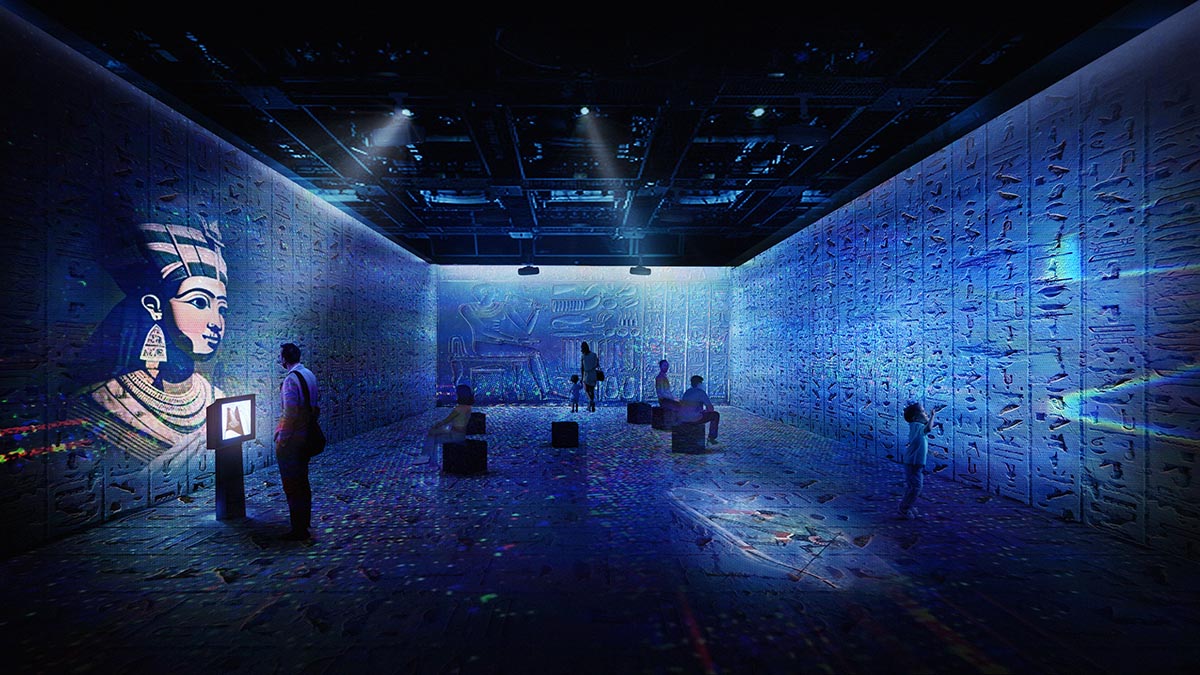
Multimedia Space. Image © OMA
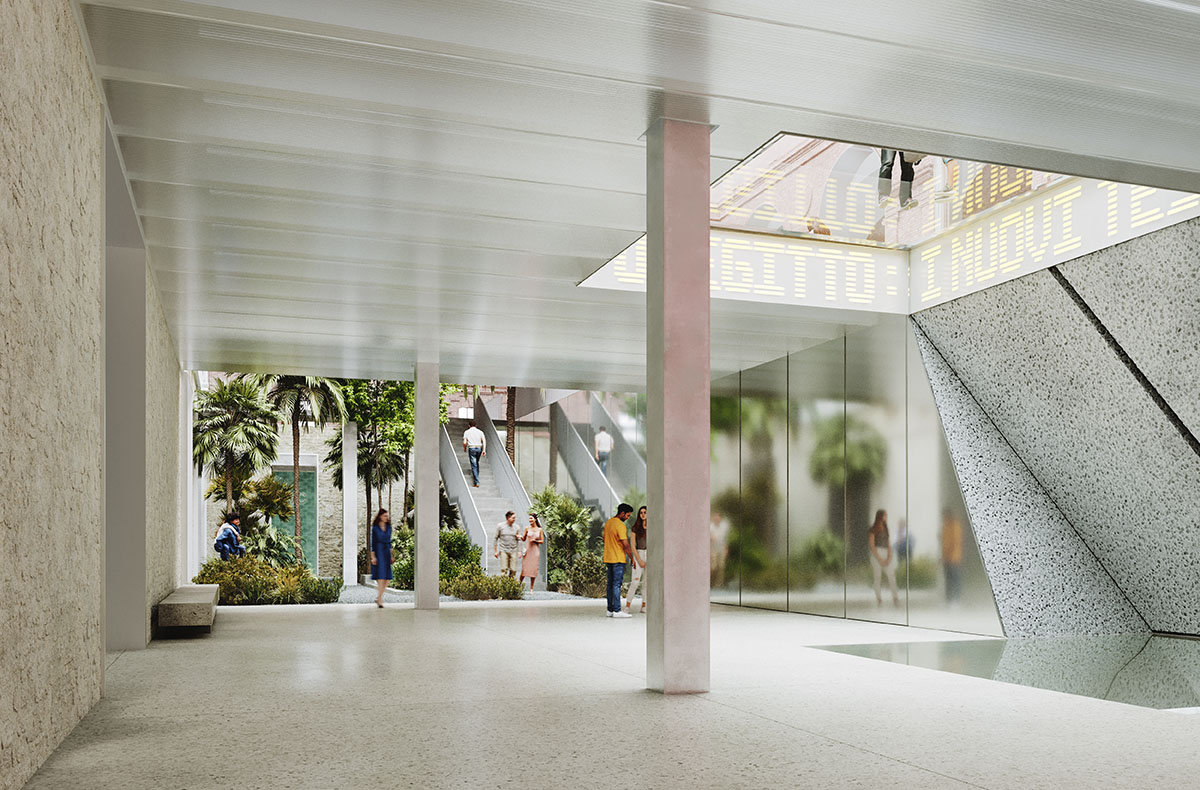
Eygptian Garden. Image © OMA by Jeudi Wang
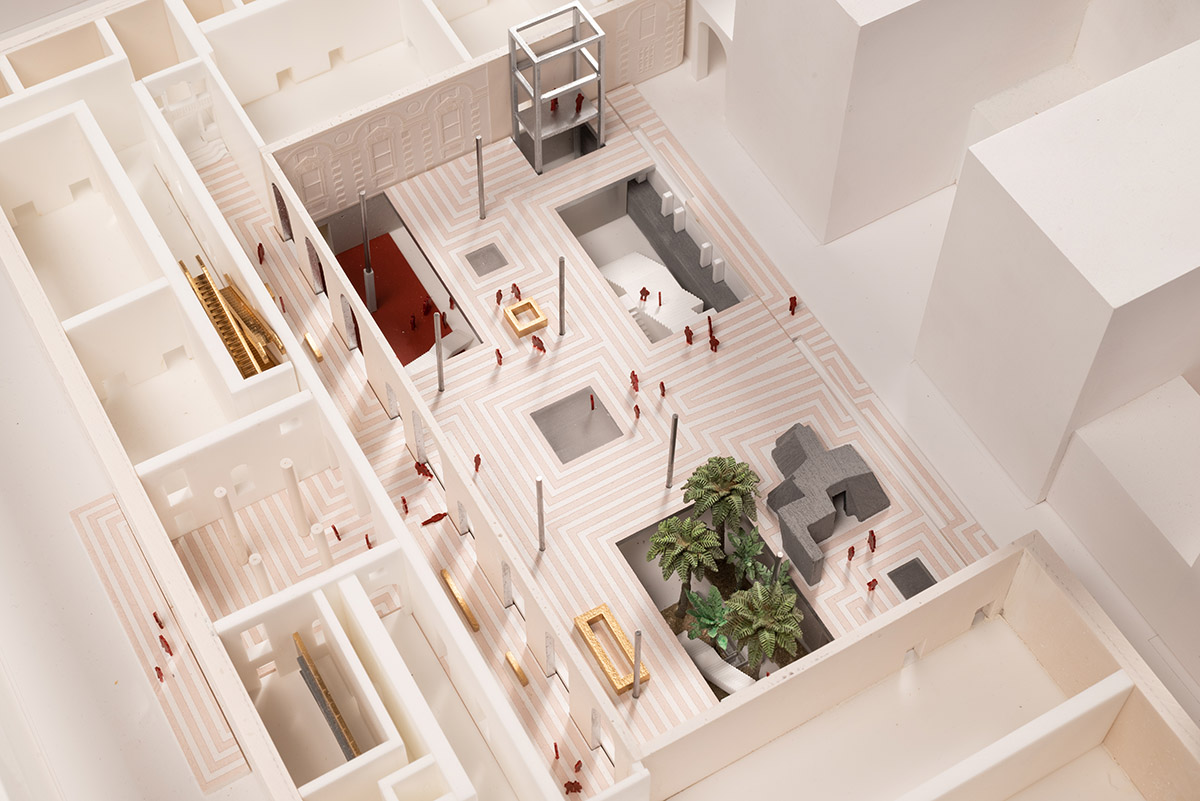
Image © OMA
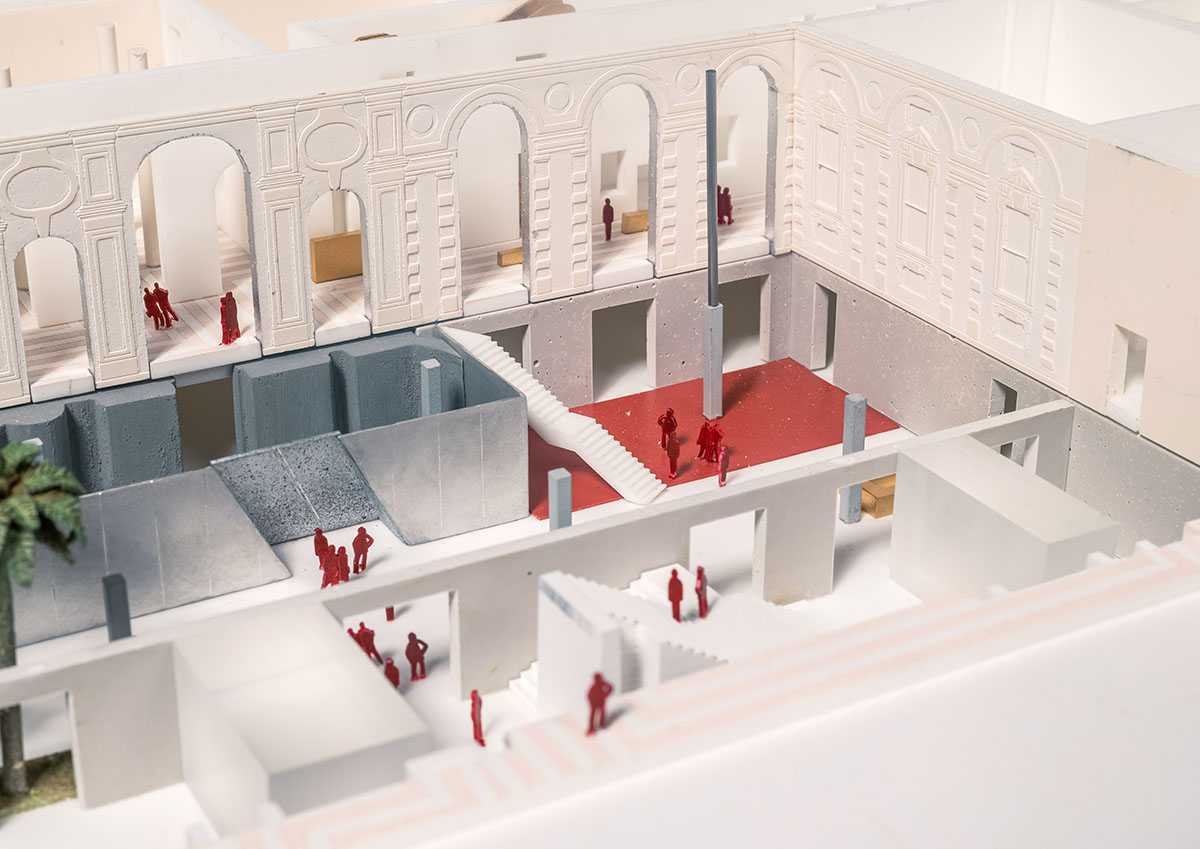
Image © OMA

Diagram. Image © OMA
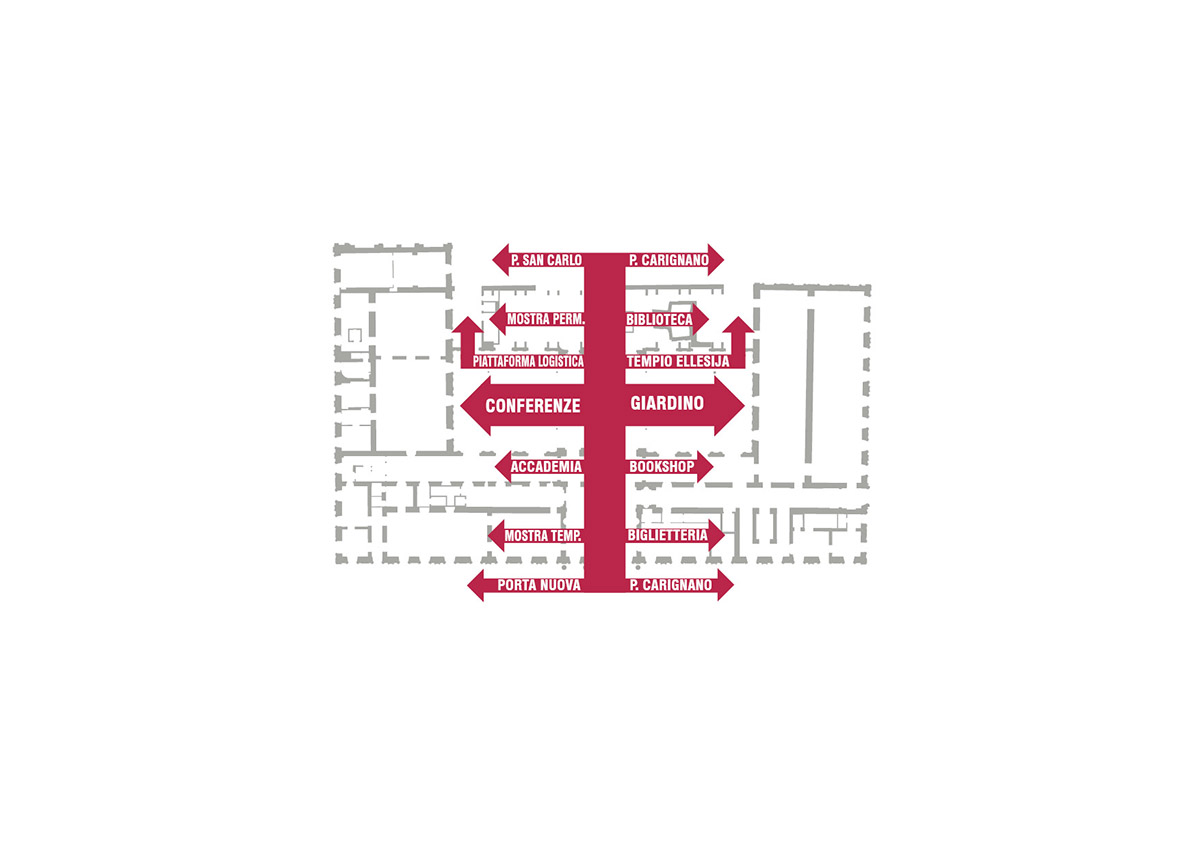
Spine. Image © OMA
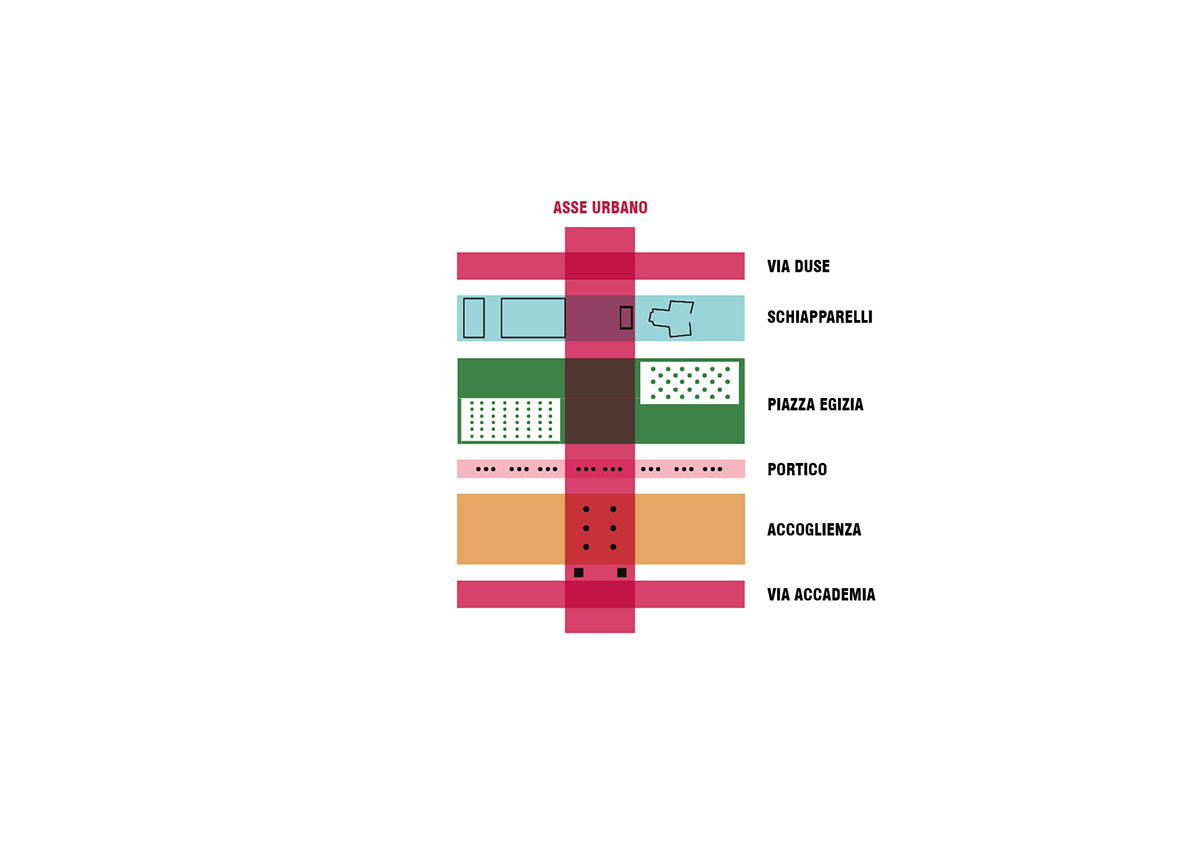
Sequence of Urban Rooms. Image © OMA
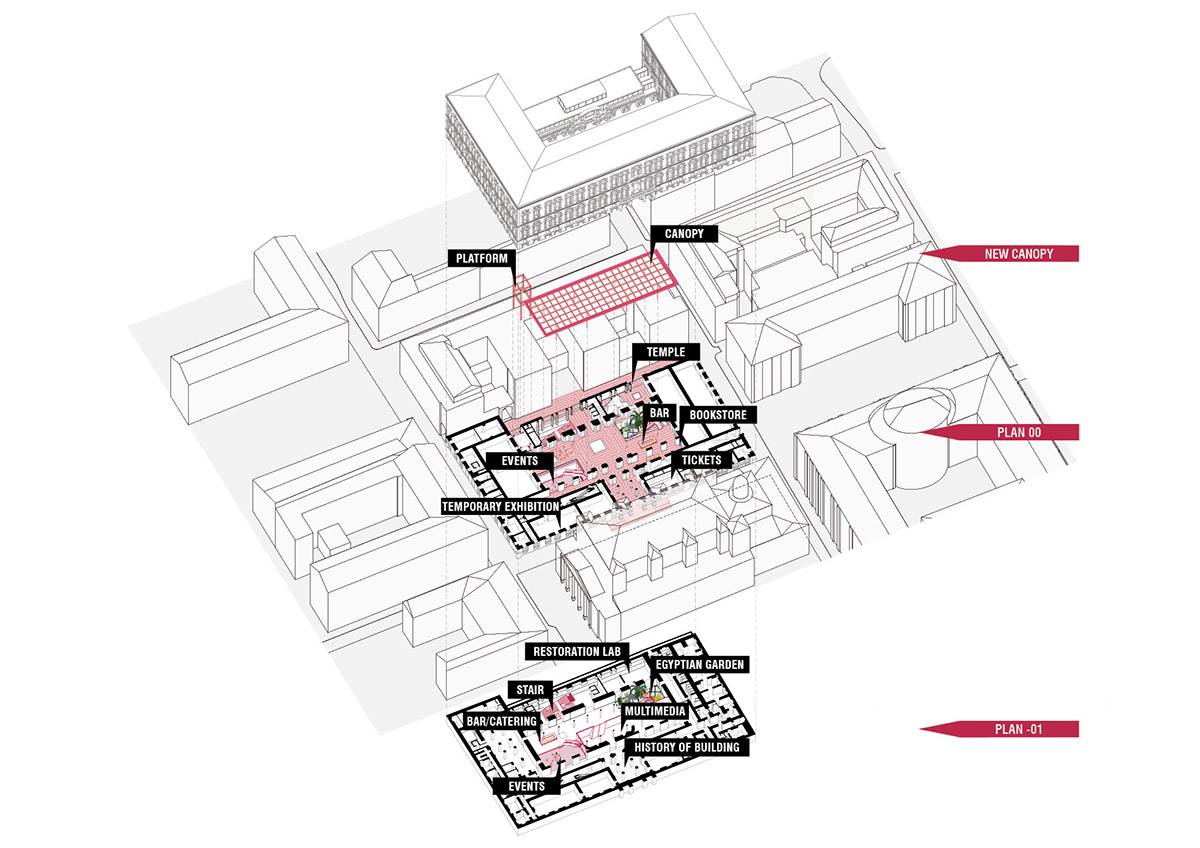
Program. Image © OMA
According to the studio, the architecture of the museum has undergone numerous changes over the past two years. This has led the museum increasingly becoming enclosed and detached from the rest of the city.
The renovated version of Museo Egizio 2024 is aimed to address the museum’s historic role as a main civic space in Turin and its 21st century social ambitions.
OMA recently completed a scenography for the inaugural edition of the Islamic Arts Biennale 2023 in Jeddah, Saudi Arabia and a new exhibiton space for French luxury fashion house Dior at Museum of Contemporary Art Tokyo (MOT) in Tokyo, Japan.
Project facts
Project: Museo Egizio 2024
Status: Competition
Client: Fondazione Compagnia di San Paolo, in collaboration with Fondazione Museo delle Antichità Egizie di Torino (Museum of Egyptian Antiquities Foundation, Turin) and Fondazione per l'architettura / Torino (Architecture Foundation, Turin)
Location: Turin, Italy
Program: Preservation and repurposing
Partner: David Gianotten
Project Leader: Andreas Karavanas
Team: Rui Pedro Couto Fernandes, Giovanni Nembrini
Collaborators
Local Architect: Andrea Tabocchini Architecture (Andrea Tabocchini and Francesca Vittorini); T-Studio
Historical Consultant: Professor Andrea Longhi
Visualization: Alessandro Rossi, Jeudi Wang
Conservation and Restoration: Studio Strati
Structural Engineer: Manfroni Engineering Workshop
MEP and Sustainability: Sequas
Lighting: Studio De Camillis – Fibbi
Top image © OMA by Alessandro Rossi.
> via OMA
